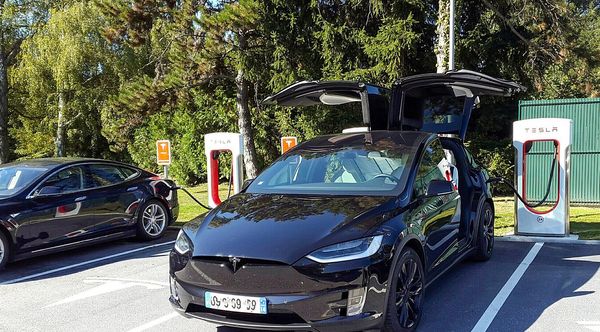Did you know that even in the EV capital of America, Los Angeles, EV owners are facing significant challenges when it comes to charging their vehicles? Recent reports highlight the flaws in the EV charging infrastructure and the need for improvements to ensure a seamless transition to electric mobility.

Joanna Stern, a columnist for the Wall Street Journal and the owner of a Ford Mustang Mach-E EV, conducted a test to gauge the reliability and functionality of non-Tesla fast-charging stations in Los Angeles. Along with her video producer, Adam Falk, they embarked on a journey to various charging stations in a Rivian R1T pickup truck. The results were disheartening, with issues encountered at 13 out of the 30 stations visited, surpassing a 40 percent issue rate.
The problems faced during the test can be categorized into three primary areas. Firstly, non-operational charging stations were a major concern. A staggering 27 percent of the surveyed stations had inoperable Level 3 fast chargers. For EV owners in immediate need of a charge, this was a huge frustration.
The second issue involved payment rejections. At one station, Stern found herself unable to pay using multiple credit cards, leading to a “CASH ONLY” demand for payment. This inconvenience affected nearly 10 percent of the otherwise operational charging stalls. Embracing contactless payment methods like Apple Pay or using charging apps for automatic payment is recommended as a solution.
The third issue revolved around communication problems between the charging station and the EV. A “handshake” failure between the charger and the car resulted in the car being unchargeable. This issue arises due to software updates or compatibility problems between different car models and chargers. Establishing a standardized protocol in the industry can help avoid these compatibility issues.
While these challenges threaten the growth of the electric vehicle market and are frustrating for EV owners, they also highlight the need for industry-wide collaboration and infrastructure improvements. Tesla’s decision to open its charging network to non-Tesla EVs in 2024 may alleviate some of these problems, but compatibility and adapter issues could arise.
Moreover, the reliability and availability of charging infrastructure significantly impact consumer confidence in adopting electric vehicles. Similar problems have been reported in other regions, emphasizing the urgent need for improvements in charging infrastructure nationwide.
With California’s ambitious goal to ban the sale of internal-combustion cars by 2035, addressing these charging infrastructure issues becomes even more crucial. Prioritizing the reliability and accessibility of charging stations is necessary to encourage widespread EV adoption and support the state’s green ambitions. Let’s work together to ensure that EV owners have a seamless and efficient charging experience, making electric mobility truly hassle-free.






